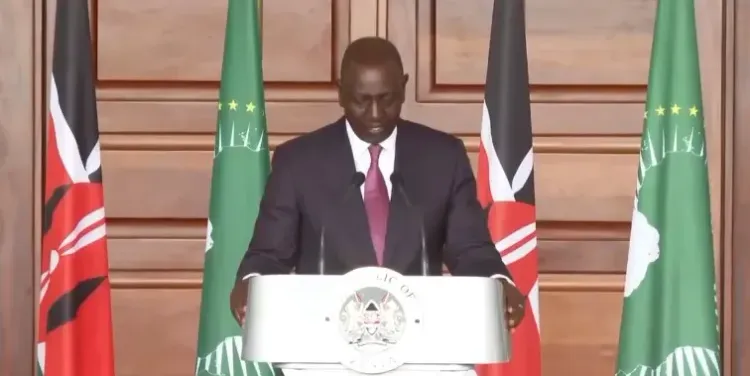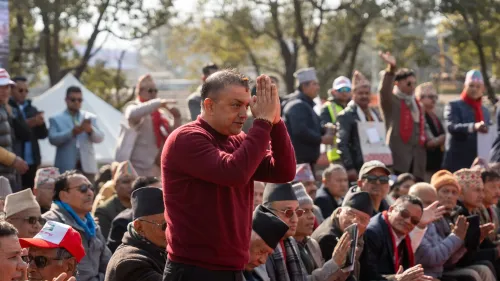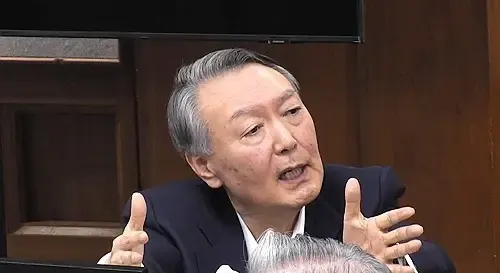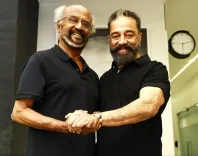African Leaders Advocate AU Reforms for Enhanced Efficiency

Synopsis
Key Takeaways
- Five African leaders called for AU reforms.
- Focus areas include peace, stability, and funding.
- Establishment of a committee for reform implementation.
- Need for a robust African peace and security architecture.
- Proposals include enhancing AU's financial autonomy.
Nairobi, Jan 28 (NationPress) A coalition of five African leaders has advocated for significant reforms of the African Union (AU), concentrating on peace and stability, funding, the Pan-African Parliament, and the African Court of Justice, aimed at enhancing its efficiency and responsiveness to better serve its member states and the African populace.
The leaders convened at a retreat in Nairobi, the capital of Kenya, and expressed that a revamped AU is crucial for unlocking the continent's full potential and will act as a pathway to prosperity for all African citizens.
Kenyan President William Ruto, who presided over the high-level Extended Bureau Retreat on AU Institutional Reforms, emphasized that the reforms will focus on revitalizing the structure, functions, and priorities of the AU Commission, its organs, and specialized agencies to improve the efficiency and management of AU initiatives.
"An African Union fit for its purpose is an essential requirement at this juncture if the AU is to adequately represent 1.4 billion Africans," Ruto stated.
The retreat saw participation from Presidents John Mahama of Ghana, Azali Assoumani of the Comoros, Taye Atske Selassie of Ethiopia, and Umaro Sissoco Embalo of Guinea-Bissau. Also in attendance was AU Commission Chairperson Moussa Faki Mahamat.
Ruto revealed that the leaders have agreed to form a committee consisting of five presidents to assist the AU's institutional reforms champion in implementing the agreed changes across various agencies, institutions, and organizations.
Having received the mandate to lead AU reforms from fellow heads of state last year, Ruto highlighted the importance of reforming the African peace and security architecture to ensure enduring peace and stability.
The retreat suggested creating a panel of experts to provide recommendations for strengthening Africa's conflict response and financing mechanisms.
The leaders also proposed enhancing the AU's financial autonomy. Ruto mentioned the recommendation to activate the African Court of Justice and appoint judges, which would establish a conflict resolution mechanism within Africa, particularly for disputes.
Selassie emphasized the need for regular and thorough dialogue regarding pressing continental issues and highlighted the significance of fostering robust political will to realize the continent's transformation goals. He also proposed establishing an AU Peace Support Directorate akin to the United Nations' structure. "We must implement a framework that mirrors the UN Security Council, especially regarding peace support operations," he stated.
Mahama remarked that the 55-member continental entity requires bold and transformative reforms to effectively tackle emerging challenges. He urged the AU to evolve into a more efficient and impactful organization by streamlining its decision-making processes to ensure they are prompt and results-focused. He acknowledged that overlapping mandates impede effective decision-making and that bureaucratic inefficiencies undermine trust among citizens and international partners.
Embalo noted that reforms within the pan-African body are vital for the collective benefit of the continent, driving it towards an era of peace and global influence. "We face numerous challenges, but the opportunities on our continent are vast," he concluded.










